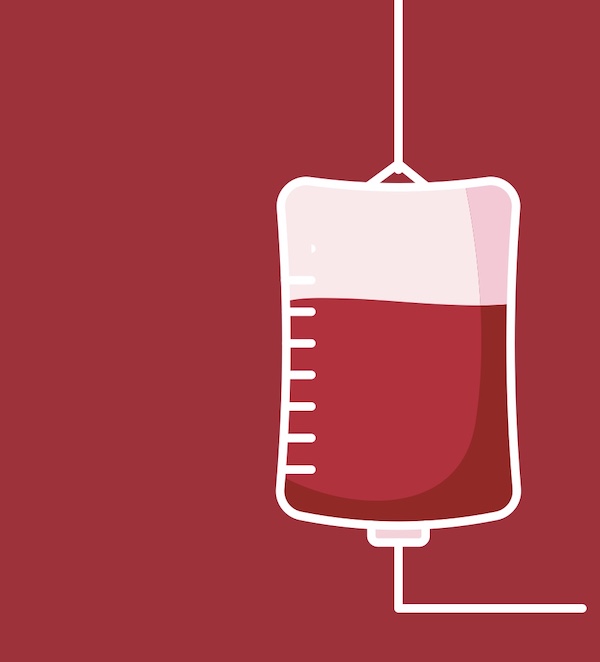Across the United States, donating blood is a lifesaving and essential part of caring for patients. The need for donated blood is constant, and blood centers are open and in urgent need of donations even during Covid-19. Every 2 seconds, someone in the U.S. needs blood.
Nancy Jenks said, “I have been donating blood for 32 plus years. Checking my online profile with Vitalant, my first blood donation was on June 21, 1988. It also lists I made 143 visits. Unfortunately, all 143 visits were not qualifying donations. Now and then I get deferred because of low iron by their standards. When I get deferred, I cannot re-schedule an appointment for six weeks. When you can donate, you have to wait eight weeks before you can donate again. I register online, which is very easy to do. The blood centers do have giveaways and raffles at times, which are nice enticements.”

Is it okay to donate blood during the coronavirus outbreak?
CDC is supporting blood centers by providing recommendations that will keep donors and staff safe. Examples of these recommendations include spacing donor chairs 6 feet apart, thoroughly adhering to environmental cleaning practices, and encouraging donors to make donation appointments ahead of time.
Jenks said, “Since March 2020 when the first lockdown happened, I have donated blood three times with my last time being December 24. Whenever people donate blood, they like to post it on their social media account and I am one of them. But besides the posting, there is the feeling of knowing you are helping others whether it is because someone needs blood during surgery or someone was in a car accident, or whatever the reason may be. One blood donation saves multiple lives. That feeling of saving a life is warming to the heart. My next appointment is February 22.”
Should people who recovered from COVID-19 donate blood?
Blood donated by people who’ve recovered from COVID-19 has antibodies to the virus. The donated blood is processed to remove blood cells, leaving plasma and antibodies. These can be given to people with COVID-19 to boost their ability to fight the virus.
Diane Tarrant said, “I did not donate during COVID until December at Meadowview Lodge. I was not given a COVID test before donating, just COVID questions and a temperature check. Versiti did an excellent job of precautions during my donation. I’m registered with Versiti and knew I was COVID antibody free within 14 days via my profile. I had decided that if I did test positive, I wanted to know more about donating my antibody plasma. My next donation is February 18, I feel the same, I will donate my antibodies if I ever show up positive.”
Sandy Rauschenberg also donated during the Blood Drive at Meadowview.
Rauschenberg said, “It’s something that you can do that’s no big deal. My husband and I have given three times, during the last year. I was a little nervous to give after Covid-19, but I heard that there was a desperate need. It was fine, they all have masks and it is sanitized. And for an added incentive, I heard that you burn 600 calories by giving blood.”
Blood donation won’t become a weight loss fad any time soon. But researchers at the University of California, San Diego have found that you can lose up to 650 calories per pint of blood donated.
What’s so important about donating blood?
Blood is only available through the generosity of volunteer donors. It is estimated that 95% of the population will use a blood or a blood component by the age of 75. Unfortunately, less than 5% of the eligible population donates.
Who can give blood? Almost anyone who is healthy, at least 16 years old, and weighs at least 110 pounds.
What are the major blood types? Your blood type is determined by the antigens it contains. There are two major types of blood antigens: ABO and Rh, which combine to create blood types: O+. O-, A+, A-, B+, B-, AB+ & AB-
Tarrant said, “I am O-, so was my dad. He introduced me to the fact that we are universal donors. All blood types can receive O- blood type in emergencies. My dad being an avid donor, turned me into one. Versiti, previously Heartland, have my donation records online since 1996. I give approximately four times a year, more if I can since you are eligible every eight weeks. Vacations abroad, sometimes defer you for a year if you visit a location on their list with high incidents of malaria, etc. My low iron has deferred me several times. Over the years I have donated whole blood, neonatal whole blood, and platelets in the past. I always defer to the site for the greatest need for O-. I feel good about donating, I feel being O-, a universal donor, it is my good citizen obligation.”
The need for O- blood is the highest because it is used most often during emergencies. The need for O+ is high because it is the most frequently occurring blood type. The universal red cell donor has Type O negative blood. The universal plasma donor has Type AB blood.
The Huntley Library is hosting Versiti for a blood drive on February 18. A mobile coach will be at the library parking lot for a blood drive. Scott Lindsey, Huntley librarian said, “Donors must be ages 17 and up. A photo ID is required to donate. Registrations for the donations can be made online. We have half of our time slots filled for that date. We have the blood drive here at the library four times a year.”
Anyone wanting to donate blood on February 18 at the library can register online at donate.illinois.versiti.org/donor/schedules/drive_schedule/5578273 or call the Information Desk at 847-669-5386 & press 3 or call 800-786-4483.




